What is Rescue & Rehabilitation?
Over the lifetime of the EPRC we have rescued more than 300 primates as a result of collaborations between EPRC, Forest Protection Departments across the country, local NGOs and community members.
Rescue
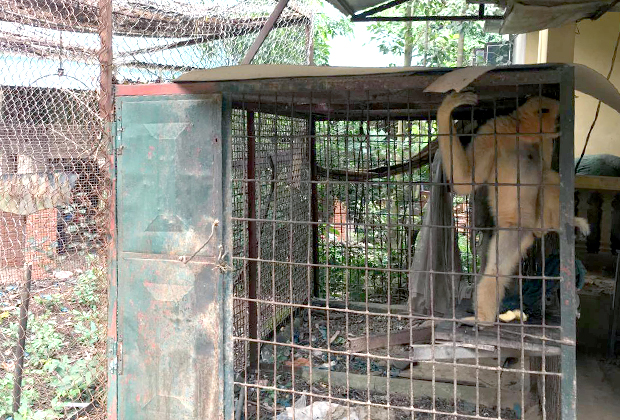
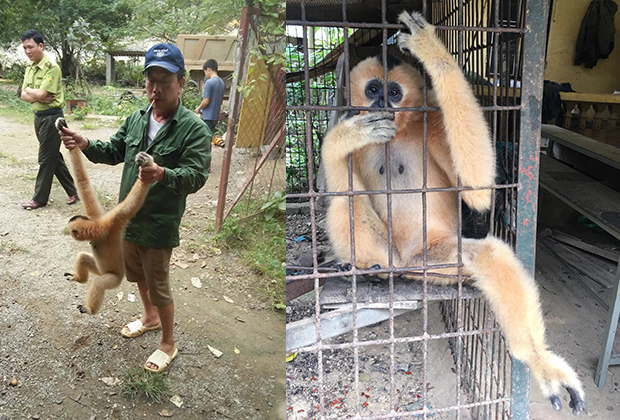
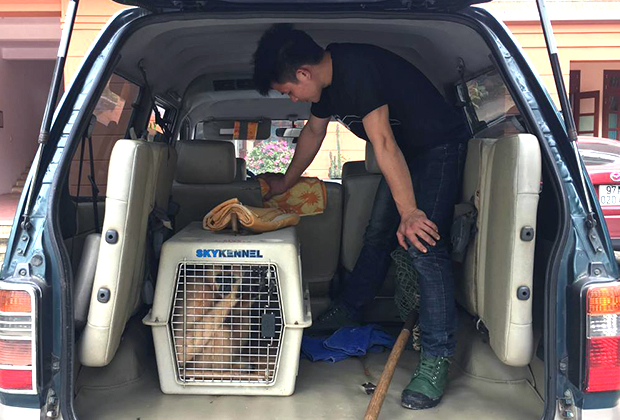
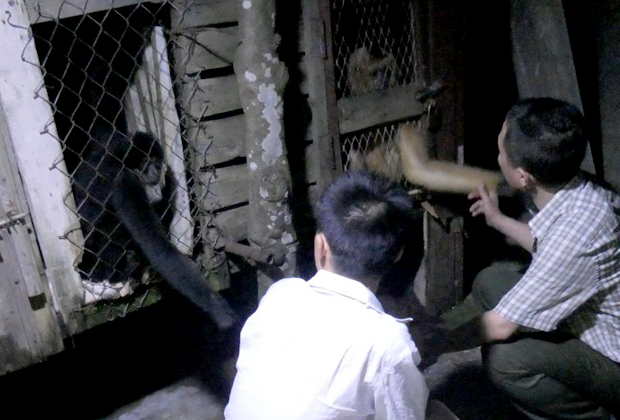
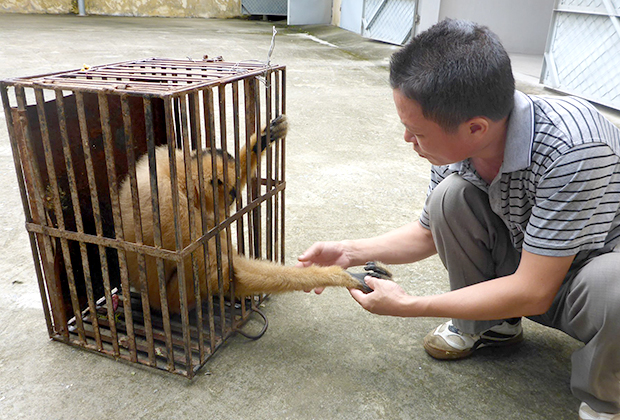
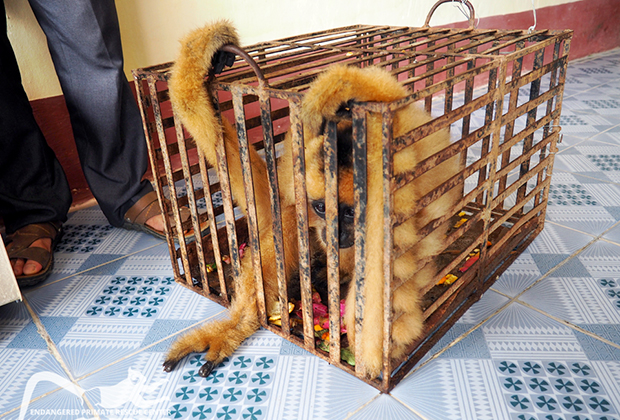
The primates of Vietnam remain under intense pressure from hunting and habitat fragmentation. Dwindling populations often occurring close to rural populations are easy prey for hunters, and animals that are not killed immediately may be kept alive as a pet or to sell for meat and medicine. These primates require specific care without which they will deteriorate rapidly and eventually die. EPRC works alongside local government agencies, NGOs and communities to rescue these animals, thus removing them from a life-threatening situation and improving their chances of survival by providing the appropriate care. The rehabilitation of these primates is a long process by which we actively manage rescued primates towards regaining the health and skills required to live as self-sufficiently as possible.
RESCUE
The rescue process begins when we are notified by Forest Protection staff, NGO’s such as Education for Nature Vietnam, or individuals who either possess an animal or know someone who has an animal. All rescues rely on the co-operation of local Forest Protection Department rangers and administrators who organize the permissions for transporting the animal to our center and who care for the animal during the interim period. Our staff advise ranger staff on the appropriate care for the animal and prepare the necessary equipment based on its age and state of health. Once the necessary permits are given our staff begins their journey, often traveling for 2-5 days.
When they arrive at the center a rapid health assessment is made and a plan for treatment implemented. Adult animals are transferred to our quarantine facility, and infants are cared for immediately by our experienced baby keepers.
EPRC rescues on average 20 primates a year.
Rehabilitation
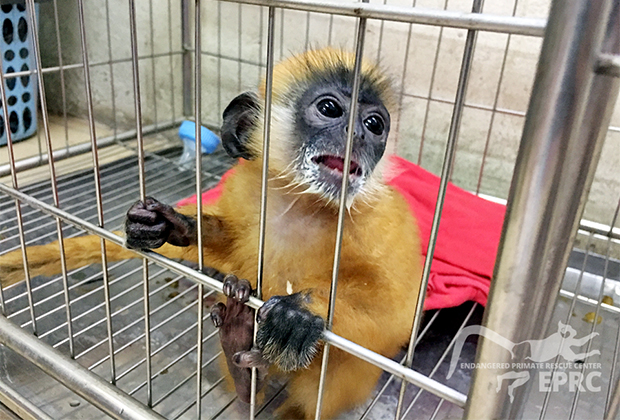
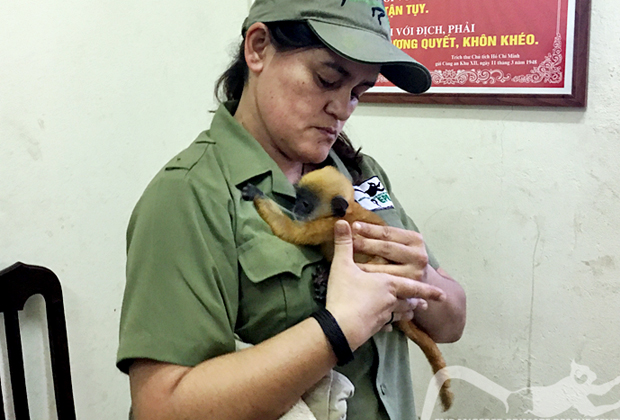
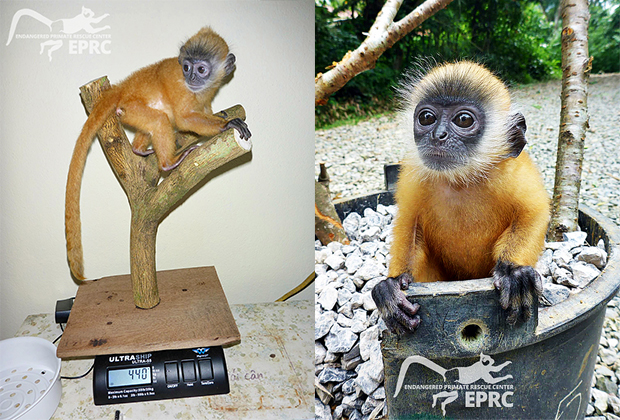
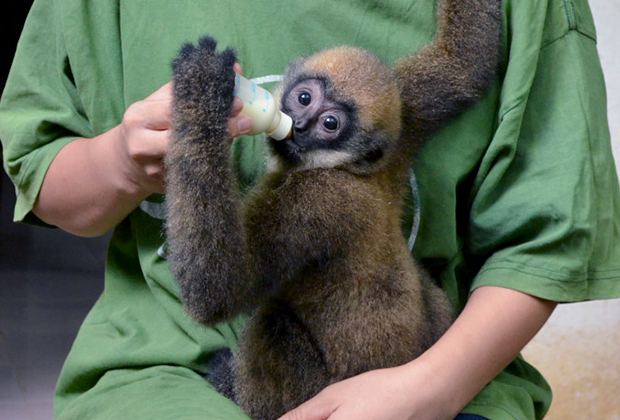
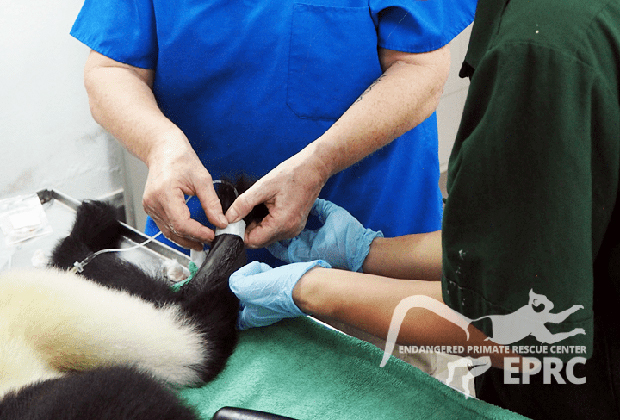
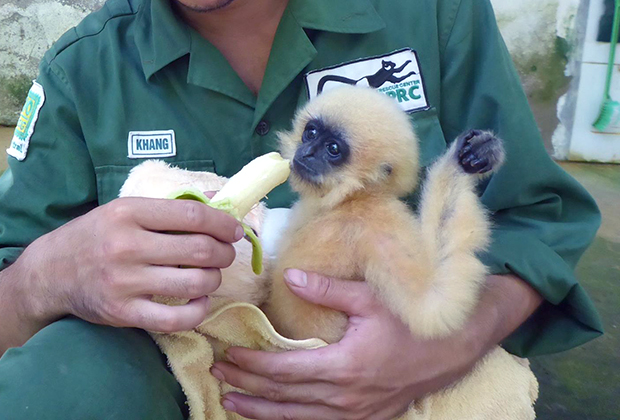
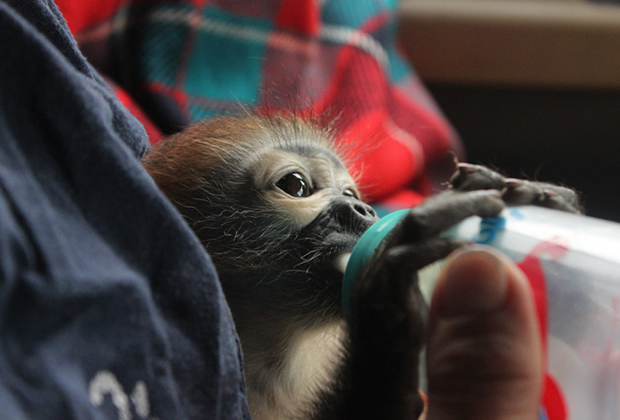
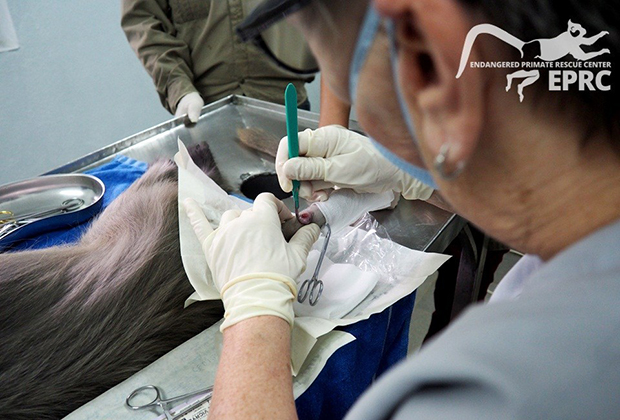
REHABILITATION
Adult langurs benefit greatly from social contact with conspecifics so our main focus after rescue is to ensure that they adjust well to the diet of leaves available here in Cuc Phuong, come through their quarantine period healthy and integrate as soon as possible into a social group. Infants require far more intensive care, but the main objectives are the same; nurture them to good health and begin socialization as soon as possible. Langurs do not mature until 3-5 years of age, so during this time, we house our juvenile langurs in a social group, to which we introduce new infants as soon as they are strong enough. By integrating the rescued infants into our juvenile group as soon as possible we hope to ensure early development of social skills that allow the infant to grow into a well-adjusted adult that can function normally in a social group. Once the infants reach adulthood, we introduce them to groups in our main population. The langurs are fed on a natural diet, consisting of tree stems with leaves, flowers, and buds which vary seasonally. They are fed 3 times a day at times that reflect their natural feeding bouts. Where possible langurs are housed in functioning social groups.
Loris REHABILITATION
Lorises often come to us in bad condition, they are undernourished, stressed and often suffer disease as a result of a compromised immune system. Lorises are territorial and males do not tolerate other males in their territory, thus they suffer additional stress if we do not have the capacity to house them sufficiently far from each other. Rescued lorises are provided a balanced diet that provides them with natural food sources as well as fruit and vegetables to supplement the seasonal variation in insects and gum. The priority for our rescued lorises is to improve their health and ensure a successful release with a minimal stay in captivity.
Gibbon REHABILITATION
Gibbons that are rescued are often either already heavily imprinted on humans, or are infants that will require hand raising. This means that the majority of the gibbons we receive are not good candidates for release. For rescued gibbons our priorities are to ensure survival post-rescue and to provide them with quality captive care, catering for their health and welfare requirements as best we can.
Endangered Primate Rescue Center – Vietnam

Established in 1993, EPRC is a not for profit project dedicated to the rescue, rehabilitation, breeding, research and conservation of Vietnam’s endangered and critically endangered primate species.
© Endangered Primate Rescue Center 2020
Website by MINIMUMMEANS

